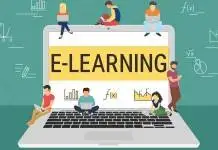by Mr. Girish Singhania, Founder & CEO, Edubridge
Introduction
India works towards developing a skilled economy by mobilizing the youth (also those residing in the underserved pockets of the county) to join the workforce. Prime Minister Shree Narendra Modi launched extensive skilling programs (in every sphere) as soon as he assumed office in 2014. The programs are being organized, as the workforce has been experiencing a skill gap. The gap had to be bridged, to keep inflation and recession at bay. The ambitious project of skilling 20 billion youth seemed impossible if technology wasn’t employed and the communication infrastructure wasn’t advantageously leveraged. This is how a prestigious collaboration came into being to bring Quality Education to the doorstep of millions.
The coverage
EdTech typically covers all segments of learning. The online learning categories will include,
- K-12– This is the largest segment, and is the most lucrative segment in the EdTech space. The K-12 lays the cornerstone of digital learning in India.
- Online Certification – Learners usually take to an online skilling program as they are awarded a certificate towards the end of the course. This certificate will add to the resume.
- Enterprise solutions – Courses are aligned according to the industry requirement. The courses are vetted by EdTech institutions, and industry experts are employed to create a unique program, that will uplift the stance of the beneficiary at the organization. They not only possess the relevant skill set but are trained to get on the job from day one. The industry-aligned certificates will help beneficiaries avail of better placement options with competing enterprises.
- Skill development – We have a number of engineers, bankers, and IT professionals who possess relevant domain skills. These professionals require a specified skill set in conjunction with relevant soft skills to better their prospects. For instance, there are several beneficiaries who break into a cold sweat at the thought of facing the interviewer. The course is designed to give beneficiaries insight into being able to communicate effectively.
Emphasizing the importance of SKILLING
Skilling emerged as a Covid 19 staple. Professionals were being laid off as they did not possess the relevant skills to align themselves to industry requirements. Professionals and learners took to skilling in the technical segment to advance their career prospects and improve their financial situation. Skilling with EdTech opened professionals to a plethora of career options, even if they opted to switch from a non-technical to a technical field and vice-versa.
An overview of the EdTech industries in India
The EdTech industry has been around for a little over a decade. However, the services have been duly recognized during the pandemic. Online education emerged as one of the factors to once again put India on the global map. Education in India has been hugely funded by Indian Venture Capitalists. According to the Statista statistical reports; the Indian EdTech industry has accelerated four-fold since the pandemic. Currently, the Indian EdTech industry is (as of February 2022) rated at US$ 2.8 billion and is expected to rise to 10.4 billion in 2025. We have close to about 9043 registered EdTech companies in India. By understanding the profitability of the business model, the number of EdTech facilities is expected to rise.
ALSO READ: Workshop on Africa-Asia Partnership for Sustainable Development
Factors that initiated the rise of EdTech companies in India
Some factors that have contributed to the growth of EdTech in India are the pandemic and the Internet revolution.
The pandemic
During the lockdown educational institutions around the country have been forced to operate online for nearly over a year. Initially, learners braved the consequences of the digital divide but it has since then been the unending endeavor of the government and EdTech institutions to overcome the roadblock and give rise to a renewed educational ecosystem that not only employs technology but has reinvented itself favorably for learners and professionals. As time passed, learners and professionals have witnessed the merit of online learning and have begun to absorb this feature as an accepted part of the education ecosystem. Institutions are also adopting the hybrid learning model to encourage group participation, and peer-to-peer discussions, and enable learners to work together on group assignments to help better their social skills.
The Internet
As of 2021, India has recorded 1.2 billion mobile subscribers. 750 million subscribers are smartphone users, which requires a functional data pack. The total number of smartphone subscribers are expected to rise to 1.2 billion between 2022-2026. This means that the internet infrastructure is even more robust with the ability to penetrate the remote and underserved pockets of the country. This paves an inroad to the advancing pathway of knowledge. Also, during the tail-end of 2021, prominent networking solutions introduced 5G. This is supposedly a path-breaking internet facility that has allowed content creators to make education even more immersive by incorporating new-age virtues like Artificial Intelligence.
Political decisions
The National Education Programme finally took the initiative to restructure the education ecosystem, from lower kindergarten onwards. This means that education in the future, will be aligned with the requirements of the industry. Learners will be encouraged to take to practical learning together with theoretical insights. Educational institutes will lay greater emphasis on digital literacy from the grassroots level.
In February 2022, Nirmala Sitharaman announced the commencement of a digital university. This will give EdTech companies to collaborate with prestigious Indian universities, as they bring courses on a virtual plane.
By employing sophisticated grading and tracking system, education will become more transparent. Learners will have the opportunity to select subjects of their liking and learn in a classroom without walls. EdTech aim at making education more immersive by harnessing technology.
The merit of Online learning
- Avail of easy access to high-end, industry-aligned courses at cost-effective rates. Beneficiaries can retrieve the invested amount towards the course from the first salary.
- Beneficiaries meet with the opportunity of interacting with renowned industry mentors.
- The EdTech employ a sophisticated monitoring system called the LMS. This helps learners identify their weak points and overcome mistakes during the program.
- The live classroom model involves 70% of learning through discussions, and 30% will rely on instructions. This means learners are encouraged to develop their soft skills while training.
- Regular assignments and tests keep learners on high alert, pushing them to take the course seriously.
- Most EdTeches have made educational finance easy by introducing the no-cost EMI option. This makes it easier for learners coming from any walk of life to educate themselves.
- EdTech encourages beneficiaries to complete their education. This means candidates should possess a minimum pass class certificate in the Higher Secondary Certification category or beyond to sign up for a skilling program.
- Learners and professionals are introduced to trained counselors, and dedicated placement managers who can effectively guide them to take to a course of their calling.
- In India, beneficiaries who have undertaken a skilling course with an EdTech have beneficially acquired placements helping them to rise above the poverty line, and improve the overall family income by over 60 – 110%.
True to their word and worth, EdTech are not only bringing education to the doorstep of millions, but are encouraging an unmatched though process at making education more inclusive and transparent by encouraging learners to take to their calling, rather than being stuck in a job that they dislike.
visit EasyShiksha for skill development
































































